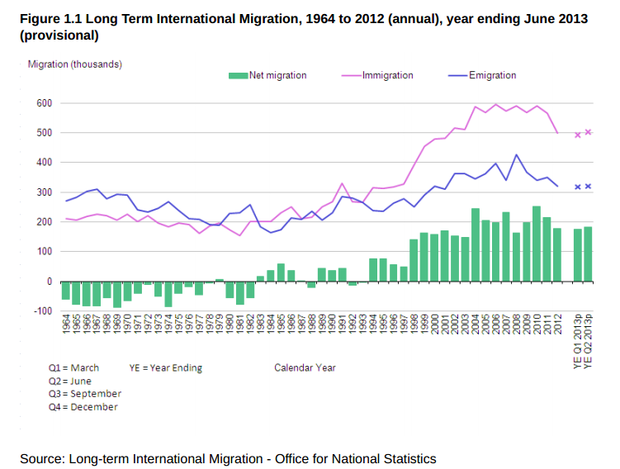UK immigration and emigration are falling: three illuminating charts

UK emigration is at its lowest since 2001, according to the latest estimates from the Office for National Statistics (ONS). The number of people emigrating fell from 349,000 between June 2011-2012 to 320,000 between June 2012-2013.

(ONS)
The number of people immigrating also fell: 503,000 people immigrated to the UK between June 2012 and 2013 – 14,000 fewer than in the 12 months before that.
There was a significant decrease in non-EU citizens migrating to the UK, too, with the number falling by 40,000 from 282,000 to 242,000.
When it came to EU15 citizens arriving for work, numbers rose significantly over the year – by 18,000 to 59,000. 18,000 of those were Spanish citizens.

Yesterday David Cameron called for tighter rules on European migration, including a string of measures to ease the impact of migration on the economy when restrictions on Romania and Bulgaria are lifted in January 2014. Neither Bulgaria nor Romania appear in the ONS's top 15 countries of last residence for 2012/13.
His questioning of free movement of labour prompted a sharp reaction from the EU, with EU employment commissioner Laszlo Andor saying Cameron's proposals were an "unfortunate overreaction".
Back in September, director of Niesr and former chief economist at the Cabinet Office, Jonathan Portes, said: "There is a strong consensus among UK economists that immigration has few if any negative impacts on native workers on average." And writing in the Guardian earlier this year: "All the evidence suggests that migrants – especially migrants from the new EU member states – are net contributors to the public purse, not a drain." He cited a report from the Centre for Research and Analysis of Migration which found that EU migrants "paid in via taxes about 30 per cent more than they cost our public services".